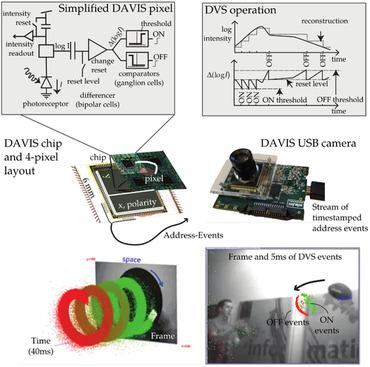Search Results for author: Rohan Ghosh
Found 13 papers, 3 papers with code
Local Intrinsic Dimensional Entropy
1 code implementation • 5 Apr 2023 • Rohan Ghosh, Mehul Motani
For a finite $|\mathcal{X}|$, this yields robust entropy measures which satisfy many important properties, such as invariance to bijections, while the same is not true for continuous spaces (where $|\mathcal{X}|=\infty$).
AP: Selective Activation for De-sparsifying Pruned Neural Networks
no code implementations • 9 Dec 2022 • Shiyu Liu, Rohan Ghosh, Dylan Tan, Mehul Motani
However, in network pruning, we find that the sparsity introduced by ReLU, which we quantify by a term called dynamic dead neuron rate (DNR), is not beneficial for the pruned network.
Optimizing Learning Rate Schedules for Iterative Pruning of Deep Neural Networks
no code implementations • 9 Dec 2022 • Shiyu Liu, Rohan Ghosh, John Tan Chong Min, Mehul Motani
(ii) In addition to the strong theoretical motivation, SILO is empirically optimal in the sense of matching an Oracle, which exhaustively searches for the optimal value of max_lr via grid search.
Towards Better Long-range Time Series Forecasting using Generative Forecasting
no code implementations • 9 Dec 2022 • Shiyu Liu, Rohan Ghosh, Mehul Motani
In this paper, we propose a new forecasting strategy called Generative Forecasting (GenF), which generates synthetic data for the next few time steps and then makes long-range forecasts based on generated and observed data.
Achieving Low Complexity Neural Decoders via Iterative Pruning
no code implementations • 11 Dec 2021 • Vikrant Malik, Rohan Ghosh, Mehul Motani
The advancement of deep learning has led to the development of neural decoders for low latency communications.
Network-to-Network Regularization: Enforcing Occam's Razor to Improve Generalization
1 code implementation • NeurIPS 2021 • Rohan Ghosh, Mehul Motani
Empirical studies find that conventional training of neural networks, unlike network-to-network regularization, leads to networks of high KG and lower test accuracies.
Towards Better Long-range Time Series Forecasting using Generative Adversarial Networks
no code implementations • 17 Oct 2021 • Shiyu Liu, Rohan Ghosh, Mehul Motani
In this paper, we propose a new forecasting strategy called Generative Forecasting (GenF), which generates synthetic data for the next few time steps and then makes long-range forecasts based on generated and observed data.
Co-complexity: An Extended Perspective on Generalization Error
no code implementations • 1 Jan 2021 • Rohan Ghosh, Mehul Motani
Subsequently, we propose a joint entropy-like measure of complexity between function spaces (classifier and generator), called co-complexity, which leads to tighter bounds on the generalization error in this setting.
Investigating Convolutional Neural Networks using Spatial Orderness
no code implementations • 18 Aug 2019 • Rohan Ghosh, Anupam K. Gupta, Mehul Motani
Convolutional Neural Networks (CNN) have been pivotal to the success of many state-of-the-art classification problems, in a wide variety of domains (for e. g. vision, speech, graphs and medical imaging).
Scale Steerable Filters for Locally Scale-Invariant Convolutional Neural Networks
1 code implementation • 10 Jun 2019 • Rohan Ghosh, Anupam K. Gupta
Augmenting transformation knowledge onto a convolutional neural network's weights has often yielded significant improvements in performance.
Pose-Invariant Object Recognition for Event-Based Vision with Slow-ELM
no code implementations • 19 Mar 2019 • Rohan Ghosh, Siyi Tang, Mahdi Rasouli, Nitish Thakor, Sunil Kukreja
Neuromorphic image sensors produce activity-driven spiking output at every pixel.
Spatiotemporal Filtering for Event-Based Action Recognition
no code implementations • 17 Mar 2019 • Rohan Ghosh, Anupam Gupta, Andrei Nakagawa, Alcimar Soares, Nitish Thakor
In this work we introduce spatiotemporal filtering in the spike-event domain, as an alternative way of channeling spatiotemporal information through to a convolutional neural network.
Spatiotemporal Feature Learning for Event-Based Vision
no code implementations • 16 Mar 2019 • Rohan Ghosh, Anupam Gupta, Siyi Tang, Alcimar Soares, Nitish Thakor
Unlike conventional frame-based sensors, event-based visual sensors output information through spikes at a high temporal resolution.





